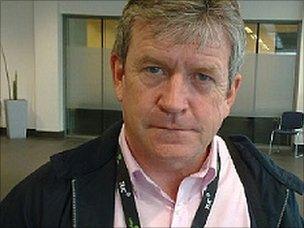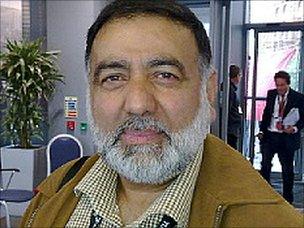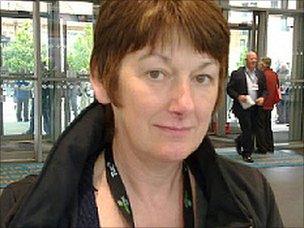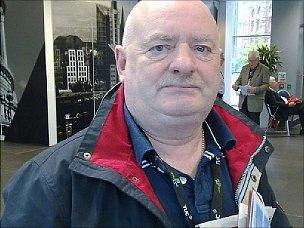TUC Views: How to tackle cuts
- Published
Trade union delegates at the TUC annual congress in Manchester give their views on the coalition's cuts plans
JIM CARTY, USDAW

We need to get our message across to the public. We have to let people know the cuts are not just about public sector job cuts, but that they will also affect services.
We also have to broaden our message to show that the private sector will suffer as a result of the knock-on from public sector cuts.
Trade unions like our own, which represents shopworkers, have to support those in the public sector, perhaps financially.
We also have to get our message past a hostile media, using every resource available.
There's a Tory government now. Unions are traditionally better at opposition and we have to take the coalition on, really challenge them.
ISMAIL MOHAMMED, UNITE

I'm a community worker and I lost my job last week as a result of cuts at the local level. It's going to get far worse at the national level soon.
We have to tackle what's going on politically - at a national level. The weak point for the coalition is the Liberal Democrats. I think we have to fight them every step of the way, because their grassroots support for the cuts isn't as strong as that among the Tories.
Every time there is a local election or a by-election, we have to do everything we can to support the Labour candidate against the other parties.
As trade unions, we have to stay firm and show the coalition that it will pay the price for these cuts. They can't get away with this.
HILARY HOSKING, TSSA

The coalition's long-term thinking is ridiculous. If they make people redundant, then they are going to have fewer people contributing to the economy. Most of them will be on benefits - it's not going to save money.
We need to make the government aware of the long-term problems.
Strikes are the last resort. Really no union wants to hold one.
But if our union decided this sort of action was necessary, I would be willing to go on strike.
It may be the last resort, but the unions are ready.
JOAN KELLY, GMB

I would ask the government to get the bankers to give back the money they have stolen from this country, so there wouldn't be all this need for cuts.
We have to put pressure on the government, through talking and publicising our point. I personally don't think it would be the answer to go on strike.
We are all waiting with interest to see what comes out of the spending review, but I'm sure it's the poor in society who will suffer the most.
It's vital that this TUC congress brings out some sense of what needs to happen.
CELIA FOOTE, NASUWT

We've had a national debt as big as this before and not dealt with it in this way.
Unions are trying to bring about protests against what is happening. We have to do everything we can to get a genuine debate going.
Much of the media reporting so far has been craven and uncritical of the government.
Ministers seem very keen to talk to the likes of the CBI and Rupert Mudoch, the rich and the powerful, and we've got to find a way of getting our voice heard.
Strikes really are a last resort. It's very hard to get teachers to go on strike, as they are always reluctant to do so, but it is something we have used before.
JIM DONAGHY, UNITE

I'm from Belfast and what's going to happen with cuts will drive us back 30 years. We need to get our message out, with the unions speaking together.
We will be challenging the ministers in London and Stormont to change their minds.
We will have to have meetings about this but one thing is sure: the trade unions must come together.
It's not even about challenging the government; it's about challenging the very idea of what they want to do to this country.
These are going to be the worst cuts since 1932. The poorest are going to be hit hardest. We must work together now.
- Published12 September 2010
- Published12 September 2010
- Published11 September 2010
- Published9 September 2010
- Published9 September 2010
- Published29 July 2010